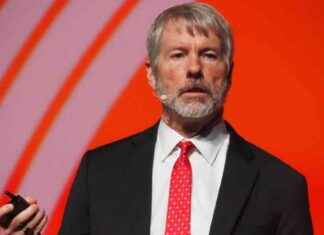The Serbian president, Aleksandar Vucic, and the Kosovar prime minister, Albin Kurti, have resumed this Thursday the dialogue facilitated by the European Union to normalize their relationship, in a meeting that has not served to unblock the dispute over the license plates and the documentation that issued by the Kosovar authorities, the seed of tension this summer in the north of Kosovo.
“Unfortunately we have not reached an agreement today. I am sorry. But it is not the end of the story. Both leaders have agreed that the process must continue and the discussion will resume in the coming days,” said the High Representative of the EU for Foreign Policy, Josep Borrell, at a press conference after the meeting in which he acted as facilitator between Belgrade and Pristina.
In any case, the head of community diplomacy has assured that “he is not throwing in the towel” and has shown his determination to continue discussing to find an “intelligent” solution to the situation, noting that “there is a deadline” until September 1 , when the controversial Kosovar law will come back into force.
European sources confirm to Europa Press that the talks between Vucic and Kurti will continue for the next few days in Brussels with the mediation of Miroslav Lajcak, the EU’s special envoy for the Dialogue between Belgrade and Pristina.
The appointment was marked by the blockades of border crossings by the Serbian community in protest at the application of a law – already postponed for a month – by which people from Serbia who entered Kosovo had to hand over their identity documents, which would be replaced by others issued in Pristina.
As Borrell has acknowledged, this Thursday’s meeting was not just another meeting within the framework of the dialogue between Belgrade and Pristina facilitated by the EU, since it comes at a “dramatic and dangerous moment for Europe”, in the midst of the war in Ukraine, and has transmitted to Vucic and Kurti that they are responsible for alleviating the crisis, after stating that “this is not the time to increase tensions, but to find solutions and solve entrenched problems”.
This has been the first face-to-face between Vucic and Kurti in Brussels in more than a year, despite the fact that the EU perceives the normalization of relations between Serbia and its former province as a key element for the entry into the EU of both and for build long-term political and economic stability throughout the Balkan region.
In this sense, the High Representative has stressed that the European path of Belgrade and Pristina must be the ultimate objective of both leaders. For that, “they have to find a way to move forward on the road” and “the first step is to resolve the current situation”, he has stated in relation to the enrollment crisis.
The talks between Serbs and Kosovars in Brussels have gone through different phases without reaching any major agreement since they began more than a decade ago. In this period there have been periods of up to a year and a half without encounters due to the political uncertainty in the region.








